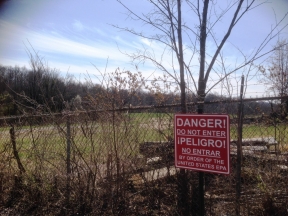Environmental Justice
Environmental justice means not only protecting human health and the environment for everyone, but also ensuring that all people are treated fairly and given the opportunity to participate meaningfully in the development, implementation and enforcement of environmental laws, regulations and policies. When an environmental public health issue arises in a community that has been environmentally distressed, special environmental justice considerations are appropriate. Some places where community residents are exposed disproportionately to environmental harms or risks fall outside of regulatory authority. Consideration of civil rights, planning, community development, natural resources, cleanup or dispute resolution may be needed.
Why strive for environmental justice?
The Environmental Protection Agency (EPA) describes environmental justice as the fair treatment and meaningful involvement of all people regardless of race, color, national origin or income with respect to the development, implementation and enforcement of environmental laws, regulations and policies. All communities and persons should receive the same degree of protection from environmental and health hazards and equal access to the decision-making process to have a healthy environment in which to live, learn and work.
The Centers for Disease Control and Prevention (CDC) suggests the environmental justice movement goes beyond creating healthier environments. It can help social change aimed at meeting basic human needs and enhancing our economic quality, health care, housing, human rights, environmental protection and democracy. Though, despite progress, disparities in quality of life for minority groups remain, and key health outcomes vary greatly by race, sex, socioeconomic status and geographic location.
The Tennessee Department of Environment and Conservation (TDEC) states environmental justice is based on the principle that all people should be protected from environmental pollution and have the right to a clean and healthy environment. TDEC sums up environmental justice as:
- protection of the health of the people of Tennessee and its environment,
- equity in the administration of the State's environmental programs, and
- provisions of adequate opportunities for meaningful involvement of all people with respect to the development, implementation and enforcement of environmental laws, regulations and policies.
What is the Civil Rights Act and Title VI?
The Civil Rights Act of 1964 outlawed discrimination based on race, color, religion, sex or national origin. It ended racial segregation in schools, at the workplace and at public facilities. Title VI of the Civil Rights Act of 1964 is a national law that protects persons from discrimination based on their race, color or national origin in programs and activities that receive Federal financial assistance. As many state and local governments receive federal financial assistance, these protections extend to people and their communities. Under Title VI, you cannot be denied health care, public assistance or other social service benefits. There are forms of discrimination based on race, color or national origin. These include:
- Receiving a different service from that provided to others.
- Being segregated or treated separately when receiving a service.
- Being refused a service if you have met the eligibility requirements.
For more information contact:
Tennessee Department of Health
Title VI Compliance Officer
Office of Compliance
710 James Robertson Parkway, 5th Floor
Nashville TN 37243
(615) 741-9421
Luvenia.Harrison@tn.gov
How does environmental justice benefit communities?
Communities across the United States have completed environmental justice programs and activities to benefit their residents such as:
- constructing light rail to connect underserved residents,
- creating environmental justice education,
- reducing the threat of lead-based paint in housing,
- improving environmental justice policy,
- revitalizing abandoned, blighted or neglected properties,
- cleaning up contaminated sites,
- representing underserved groups, plus
- reducing language, literacy or cultural barriers.
Government partners
Tennessee Department of Health (TDH)
Division of Minority Health and Disparities Elimination
www.tn.gov/health/health-program-areas/dmhde.html
Additional resources
